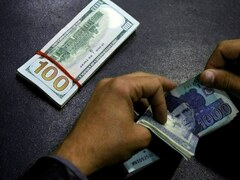India circumvents other countries' export controls and leaks sensitive technology in procuring materials for its nuclear programmes, according to a report by former UN weapons inspector David Albright. The Indian Embassy dismissed the report as "baseless."
The report, released on Friday, challenges a central US argument in favour of a landmark US-India nuclear deal: that India has such an impeccable record of protecting technology it can be trusted with US and other foreign nuclear materiel.
Albright, a physicist who heads the Institute for Science and International Security, said he had "uncovered a well-developed and secret Indian programme to outfit its uranium enrichment programme and circumvent other countries' export control efforts."
The report, co-authored by researcher Susan Basu, said when India seeks bids for nuclear-related equipment, it allows prospective suppliers to buy blueprints and manufacturing instructions for a particular item. Company officials could then sell the item or related technology to other customers.
"That's what we think is new, that you could go buy some centrifuge design information through the Indian procurement system," Albright told Reuters in an interview.
"This is not a normal way of doing business. It's a very irresponsible way to handle sensitive information," he added.
Indian Embassy spokesman Venu Rajamony told Reuters, "This so-called report is ridiculous and filled with all kinds of baseless charges."
He noted that Mohamed ElBaradei, head of the International Atomic Energy Agency, welcomed the agreement as a milestone to consolidate the non-proliferation regime and that the White House praised India as having a strong non-proliferation record.
A State Department spokesman, Tom Casey, said the department would review Albright's report but stressed: "India has developed a solid nuclear non-proliferation export record over the years."
The Bush administration on Thursday asked the US Congress to begin implementing the deal by changing US laws to permit nuclear sales to India, ending a three-decades-old ban. The 45-nation Nuclear Suppliers Group, who oversees nuclear transfers, also must change its rules.
India has been barred from acquiring foreign nuclear technology because it refused to sign the nuclear Non-Proliferation Treaty and developed nuclear weapons.
Prominent South Asia specialists urged Congress to support the controversial deal and warned that failure to do so would be a "body blow" to a strong relationship with India that is key to US goals in Asia.
In a letter to lawmakers, they said critics have some legitimate concerns about the deal but "on balance ... (these) are less compelling than the clear, tangible and immediate benefits" of securing India's acceptance of international norms, like inspections on civilian nuclear facilities.
Signatories included former ambassadors to India William Clark and Frank Wisner; former Assistant Secretary of State Karl F. Inderfurth; Stephen Cohen of the Brookings Institution; and Selig Harrison of the Center for International Policy.
Among other claims, Albright said Indian Rare Earths Ltd of Mumbai, under direction of India's Department of Atomic Energy, procures sensitive materials and technology for a secret gas centrifuge uranium enrichment plant and does not reveal to foreign suppliers that the plant is not subject to international monitoring.
"For India to become a responsible member of the international community, it must stop illegal or questionable overseas procurements for its nuclear programme" and strengthen its export control system, the report said.
BR100
12,012
Decreased By
-314.6 (-2.55%)
BR30
35,723
Decreased By
-1079.9 (-2.93%)
KSE100
114,064
Decreased By
-1405.5 (-1.22%)
KSE30
35,034
Decreased By
-529 (-1.49%)




















Comments
Comments are closed.